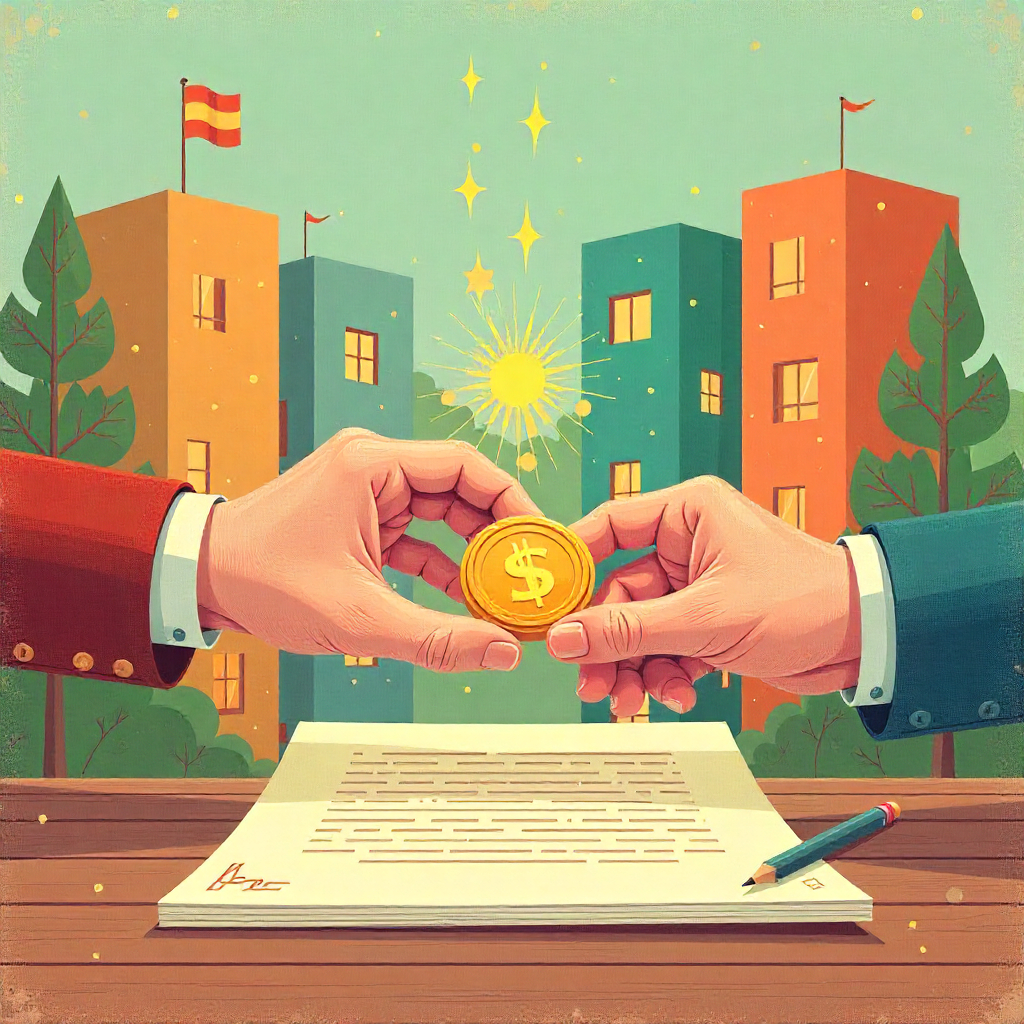Real estate has always been one of the world’s most valuable and stable forms of investment. From residential properties to commercial complexes, investors have relied on real estate for long-term security, wealth creation, and passive income. However, traditional real estate investment comes with several challenges—high capital requirements, limited liquidity, slow processes, and complex legal documentation. But that is changing fast.
With the rise of blockchain technology, real estate tokenization is opening new doors for modern investors and shaping the future of the property industry. By converting physical property assets into digital tokens, tokenization unlocks opportunities for global investors, developers, and enterprises. This article explores how real estate tokenization works, why it matters, and how it is reshaping the future of real estate worldwide.
What Is Real Estate Tokenization?
Real estate tokenization is the process of dividing the value of a property into digital tokens stored on a blockchain network. Each token represents a specific share of ownership similar to how stocks represent partial ownership of a company.
Because these tokens are recorded on a decentralized ledger, they are:
-
Secure
-
Traceable
-
Immutable
-
Easily transferable
Tokenization allows properties to be bought and sold in fractions, enabling small investors to participate in markets that once required massive financial commitments.
How Real Estate Tokenization Works
Although powered by advanced blockchain technology, the process itself is simple and structured:
1. Asset Identification
A residential, commercial, or industrial property is selected for tokenization. This could be:
-
An apartment building
-
A hotel
-
A shopping mall
-
A warehouse
-
A piece of land
2. Legal Structuring
A legal framework is created to ensure compliance with regulatory standards. This includes:
-
Forming a Special Purpose Vehicle (SPV)
-
Conducting KYC/AML checks
-
Drafting smart contracts
-
Ensuring investor rights
3. Token Creation
The total value of the property is divided into digital tokens. For example:
-
Property value: $20 million
-
Number of tokens: 20 million
-
Token price: $1
Investors can buy any number of tokens based on their budget and risk appetite.
4. Token Distribution
Tokens are offered through a crowdfunding portal, tokenization platform, or security token exchange.
5. Income Distribution & Trading
Investors receive:
-
Rental income
-
Property appreciation returns
-
Dividends
They can also sell or trade tokens on secondary markets for liquidity.
Why Real Estate Tokenization Is Transforming the Industry
Real estate tokenization introduces a range of benefits that traditional models cannot offer.
1. Lower Capital Entry
Traditionally, investors need large amounts of money to invest in real estate. Tokenization removes this barrier completely. An investor who wants to invest $50, $100, or $500 can now participate in premium global properties.
This democratizes access and creates a more inclusive investment environment.
2. High Liquidity for an Illiquid Market
Real estate is known for being illiquid selling property can take months or even years. Tokenization allows:
-
Instant trading
-
Partial selling
-
Peer-to-peer transfers
-
24/7 market access
This liquidity gives investors more flexibility and control over their capital.
3. Borderless Global Investment
Tokenized assets can be bought by anyone from anywhere, without traditional hurdles like:
-
Currency conversions
-
Foreign investment barriers
-
Cross-border legal complexities
This global accessibility drastically expands the investor pool and funding potential.
4. Greater Transparency and Security
Since blockchain records all transactions:
-
Ownership is fully transparent
-
Fraud risks are significantly reduced
-
Records cannot be altered
-
Transfers are automated through smart contracts
This ensures investor protection and data integrity.
5. Faster, More Efficient Transactions
Smart contracts automate:
-
Transfers
-
Income distribution
-
Compliance checks
-
Document verification
This reduces dependence on intermediaries like brokers, escrow agents, and legal advisors speeding up the entire process and lowering costs.
Popular Use Cases of Real Estate Tokenization
Real estate tokenization is rapidly gaining traction across different sectors.
Fractional Ownership of Premium Properties
Luxury villas, skyscrapers, and prime real estate—traditionally accessible only to elite investors—can now be fractionally owned through tokenization.
Commercial Real Estate Investment
Offices, malls, industrial parks, and coworking spaces can raise capital through token sales, making them more accessible to global investors.
Tokenized Rental Income
Apartment complexes and rental properties can distribute rental income directly to investors through smart contracts.
Tokenized Real Estate Funds
Real estate investment funds can convert their portfolio into tokens, enabling easier:
-
Entry
-
Exit
-
Capital diversification
-
Global participation
Land and Development Projects
Early-stage projects can use tokenization to raise funds faster, replacing traditional financing models.
Benefits for Stakeholders
For Investors
-
Affordable entry points
-
Enhanced liquidity
-
Global diversification
-
Fully transparent ownership
-
Automated income distribution
For Developers
-
Access to worldwide investors
-
Faster fundraising
-
Reduced dependency on banks
-
Higher project completion rates
For Real Estate Companies
-
Better asset management
-
Increased investor engagement
-
Digital transformation opportunities
-
Reduced transaction costs
Challenges Facing Real Estate Tokenization
While promising, tokenization still faces challenges:
1. Regulatory Uncertainty
Laws governing digital assets vary across countries.
2. Need for Investor Awareness
Many investors still lack understanding of blockchain and tokenized assets.
3. Technology Adoption
Traditional real estate firms may be hesitant to adopt new technology.
4. Market Maturity
Token exchanges and secondary markets are still being developed.
Despite these challenges, the industry is growing rapidly as legal frameworks, platforms, and global adoption continue to expand.
The Future of Real Estate Tokenization
The next decade will see massive growth in tokenized real estate. Experts predict that blockchain technology will transform the entire global real estate ecosystem, including:
-
Government-issued blockchain property titles
-
Instant property transfers through digital wallets
-
Token-based mortgages
-
AI-powered real estate valuation models
-
Large-scale institutional adoption
From residential homes to commercial towers, tokenization will fundamentally redefine how people invest in real estate.
Conclusion
Real estate tokenization is not just a technological upgrade it is a transformational shift in the global property market. By making real estate more liquid, accessible, transparent, and efficient, it creates extraordinary opportunities for investors and developers alike.
As blockchain adoption accelerates, tokenization will play a central role in the future of real estate investment—turning traditional property ownership into a modern, digital, and borderless experience.


